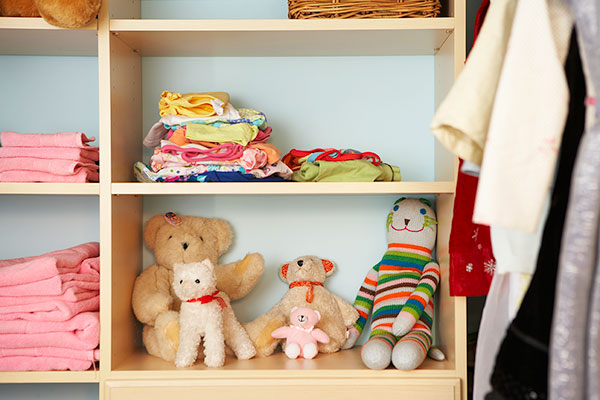Being organized may come naturally to some people, but certainly not to everyone. Some adults still struggle with being more organized at home, at work, and throughout life in general. Teaching kids how to be organized from a younger age can help cement this trait early on, giving them a better shot at being organized as adults. Some studies suggest that maintaining a mentality for staying organized can bring about important life benefits, such as improved financial and career success, a reduction in stress, and better habits in terms of exercising, eating, and even sleeping, to name a few.
Taking the time to organize your home and keeping it as organized as possible can be a great first step in teaching your kids how to be organized. Consider these suggestions to help your kids develop strong organizational skills from a young age.
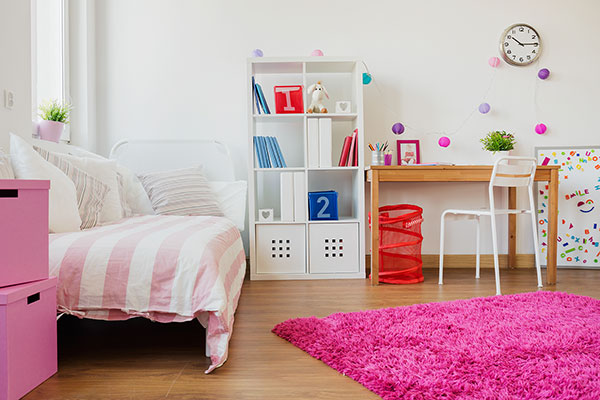
Organizing Tips for All Ages
Many times, cluttered homes evolve from a core issue—in many cases, when no one in the family picks up after themselves. Counters and tables become cluttered, laundry piles up, and rooms are left completely askew after a long day at work or school. No single person has all the energy to clean up everything, so many times, the clutter sits until the next day, or even the weekend, when it may be all picked up in one fell swoop.
But rather than going through this exhausting cycle every week, try instead to encourage the whole family to get organized and be responsible for their own items each day. It only takes a few moments if each person puts their own things away when they are done with them. Even toddlers can be taught to put their dirty laundry in a hamper or to help put away their leftovers or clean up their toys.
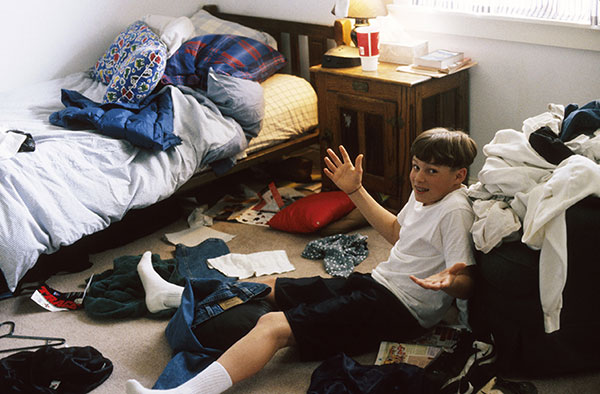
Consider implementing a few creative kids’ storage ideas around the home to help reduce the clutter and keep things organized. Bookshelves, baskets, and toy boxes can help to keep their playthings under control. The use of special containers and labels can help teach your little ones to put things away in their proper places when they are done using them.
Sometimes, our homes simply become filled with too much “stuff.” It can be a cathartic process to sit down as a family and find things to throw out, to give away to lesser fortunate families, or to store away for a rainy day or posterity’s sake. You can box up things you want to keep and place them in your attic, or better yet, in a personal storage unit where you avoid simply moving the clutter to another part of your home.
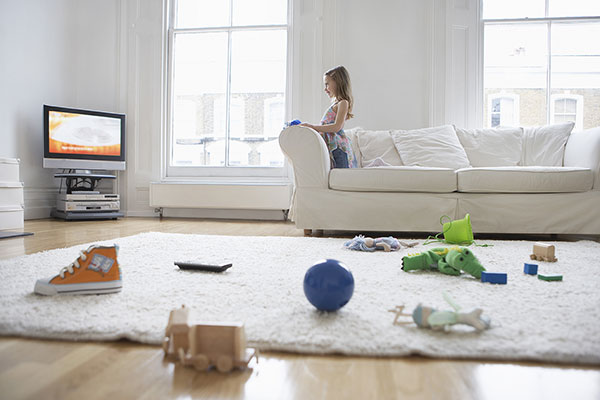
Fun Organizing Ideas for Kids
As you teach your kids to be more organized, remember to make it fun rather than just another chore on the list. For very little ones, make up a fun game to explain just what being organized means. For example, show a picture of something or simply mention it and ask where it should go—for example, food goes in the refrigerator, dishes and cups go in the cabinets, folded clothes go in a dresser, flowers go in a vase, and so forth. Make it fun to grab the interest and attention of your little ones.
For older kids, you can offer surprise rewards when you notice them having a particularly good time at being organized. Offer an unexpected treat for a few days of your children cleaning up their own clutter or practicing other organized behaviors. Give them the tools they need to help your cause—color-coded labels or folders for schoolwork and important papers, plastic bins to store toys, gadgets, or other accessories; and even their own personal day planners to track their assignments and activities, keeping their lives organized as well. Most of all, teach your kids that organization can be creative as well as fun!
When you have time, make an effort to cook or bake with your kids for another fun way to teach organizational skills. Your children will see firsthand the benefits of being organized by adding just the right measurements of ingredients and how that translates into a deliciously satisfying final result.
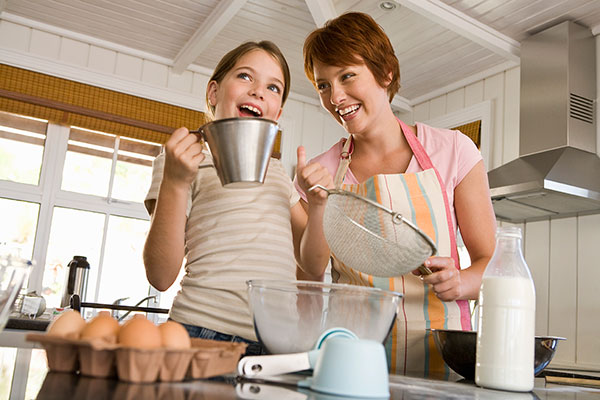
Also, stress the importance of planning and staying focused in connection with being organized. Organizing is not a one-time process but more of a lifestyle change or trait. However, planning ahead and keeping focused on whatever task is at hand can help to improve time management skills as well as reduce unwanted clutter from started-but-never-finished projects discarded around the home. Encourage and reward your kids for their ability to plan ahead and to stay focused until their tasks or projects are completed, as this, too, will help them to excel in life.
Research suggests that living in a more organized home sets your kids up for greater success not only in school but also in their futures. Use this as your motivation to declutter your home and, ultimately, to help teach your kids how to be organized in the process.

